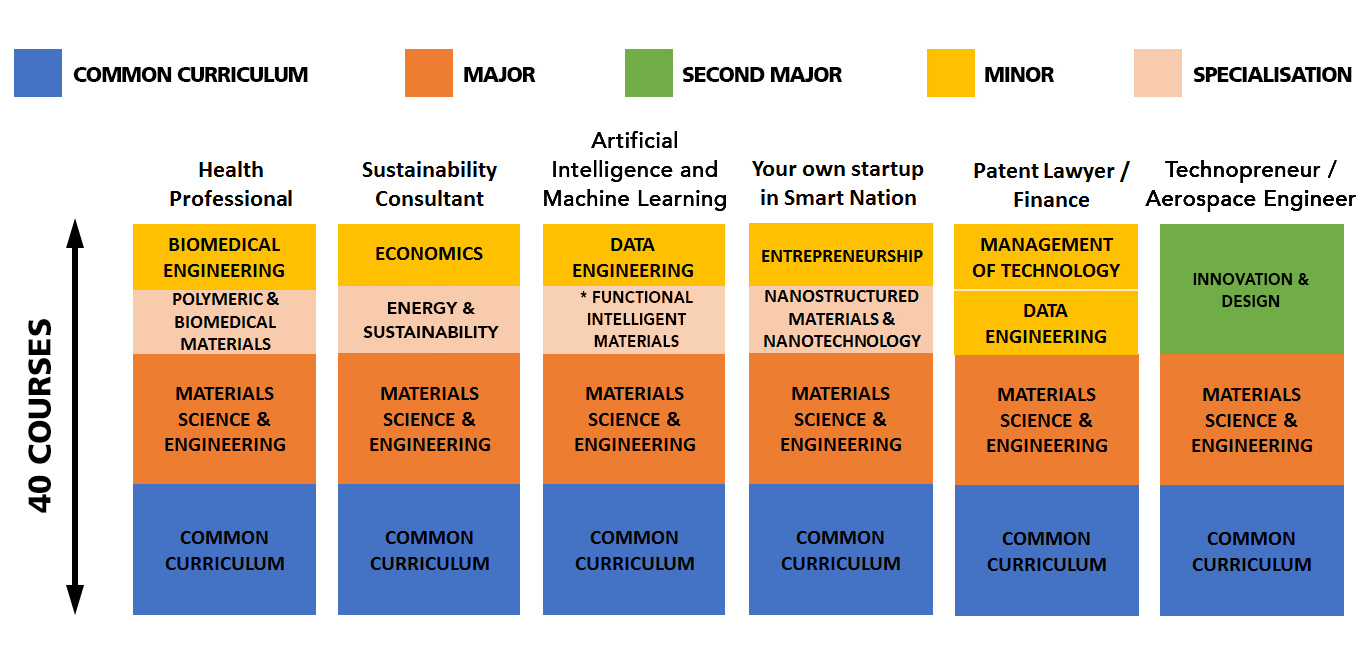Build Your Own Degree
Technology is increasingly shaping the way in which we work, think and live. This transformation is driven by digitalisation, where physical systems are connected to virtual networks, and masses of collected data are used to predict events and shape decisions.
While engineering remains vital in the next Industrial Revolution (Industry 4.0), digitalisation does demand new cognitive and technical skills, such as understanding how systems interact, how to select and use data, even how to design better for user needs.
Starting from Academic Year 2021/2022, the National University of Singapore will adopt a new undergraduate curriculum structure that gives students greater choice, breadth and flexibility in charting their learning journeys. This curriculum structure is jointly developed with the School of Design and Environment (SDE).
Build Your Own Degree (Examples for reference)

*Available in AY2022/2023 Semester 1
Unrestricted Electives: Within and Beyond Engineering
The NUS curriculum structure has provisions for Unrestricted Elective Courses (UEC), which allow students to explore greater breadth or depth in any subject and at any level.
If you wish to go deeper within your chosen engineering discipline, you may opt to read electives specialising in different areas.If you prefer instead to broaden your knowledge and skills in a complementary or contrasting area, consider taking a minor or second major.
Want to find out more? Check out our Alumni video series here as they share about their NUS Engineering journey and how it has helped them in their careers.
In the new Engineering curriculum, students have 40 Units of space for Unrestricted Electives. This means you will have the flexibility of taking a second major, a minor and specialisation, two minors, or two specialisations with your UEC. These fit well into your degree structure without you having to delay graduation.
Other options of using your UEC space include:
- Enhancement Courses: experiential learning opportunities for innovation and research
- Design Your Own Course (DYOC): students may choose what they want to learn, how they wish to learn, and from whom they wish to learn, for up to 8 Units
- Career Catalyst: foundational course to kickstart students’ preparation for internships and their future careers
Second Majors, Minors & Specialisations
Choose from more than 35 second majors and 50 minors / specialisations across nine different Faculties and Schools in NUS.
With effect from AY2021/22, the University will revise the Units requirements for Second Majors, Minors and Specialisations, for the AY2019/20 and AY2020/21 cohorts of full-time undergraduate students. The revisions will be:
These revised requirements will facilitate the process of obtaining a Second Major, Minor or Specialisation, for a more broad-based NUS education.

Examples of minors taken by current Engineering students
You can declare or apply for a second major or minor no later than the fifth semester of your study. Application for a specialisation usually takes place at the end of your fourth semester.
For the following combinations, applicants can indicate at the point of application to NUS:


